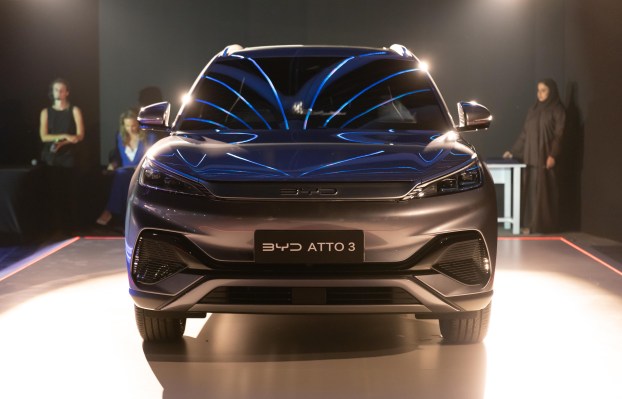A Chinese electric vehicle brand that’s rarely spotted in the U.S. is quickly catching up to Tesla’s dominance of the global EV market.
BYD, which started in Shenzhen 28 years ago, delivered 547,917 passenger EVs, including hybrids, a category it’s known for, in the first quarter of 2023. The tally surpassed that of Tesla, which shipped around 422,000 vehicles during the period.
BYD, which is short for “Build Your Dreams,” has been the go-to affordable brand for Chinese consumers who are switching to plug-ins, a contrast to the social status associated with buying a Tesla. In its backyard Shenzhen, BYD is the manufacturer of public buses and taxis, which are now 100% electric.
Building off its domestic success, the Warren Buffet-backed carmaker has been making inroads into foreign markets over the last two years. In 2022, BYD exported around 56,000 vehicles; in May this year alone, it sold over 10,000 vehicles overseas, signaling an acceleration of its global expansion.
However, amid rising U.S.-China trade tensions, the company has so far left America out of its global roadmap. BYD is currently shipping passenger cars to markets, including Singapore, where it became the best-selling EV brand for the first five months of this year, as well as Thailand, the UAE, Japan, Australia, Norway, the U.K., Germany, Brazil, Costa Rica and Mexico.
Asked in an interview with Bloomberg, Stella Li, a senior vice president at BYD, said, “The U.S. market isn’t under our current consideration.” The executive, who oversees the company’s international expansion, also believes President Joe Biden’s Inflation Reduction Act (IRA), may “slow down EV adoption in the U.S.” because it will make affordable EVs inaccessible to American consumers.
Last August, Congress passed the IRA, which gives up to $7,500 in tax credits to consumers in their purchases of clean energy vehicles that meet certain domestic sourcing and manufacturing thresholds. The law is designed to boost U.S. auto production and reduce the nation’s reliance on China’s battery supply chain.
BYD is no stranger to localization in the U.S. In late 2019, the company announced that the Los Angeles Department of Transportation ordered 130 of its battery-electric buses (the largest single order of electric buses up to that point nationwide, it claimed), and planned to build the buses in a California factory. The finished vehicles would exceed the “Buy America” requirements with more than 70% U.S. content, BYD said at the time.
BYD’s range of low-cost EV models has attracted large swathes of price-sensitive consumers, prompting some to call it the Toyota of the EV era. Localizing its production in the U.S., however, will inevitably increase its production costs, which will eventually offset the discounts granted by the act.
The Chinese company has managed to manufacture EVs at an appealing price thanks to its control over the complete supply chain. It’s one of the world’s biggest manufacturers of lithium batteries — a critical component of electric cars — and supplies to its own competitors including Tesla. Like other EV manufacturers in China, BYD has also enjoyed a decade of government subsidies amid the nation’s push to phase out gasoline cars and be a leader in renewable energy.
